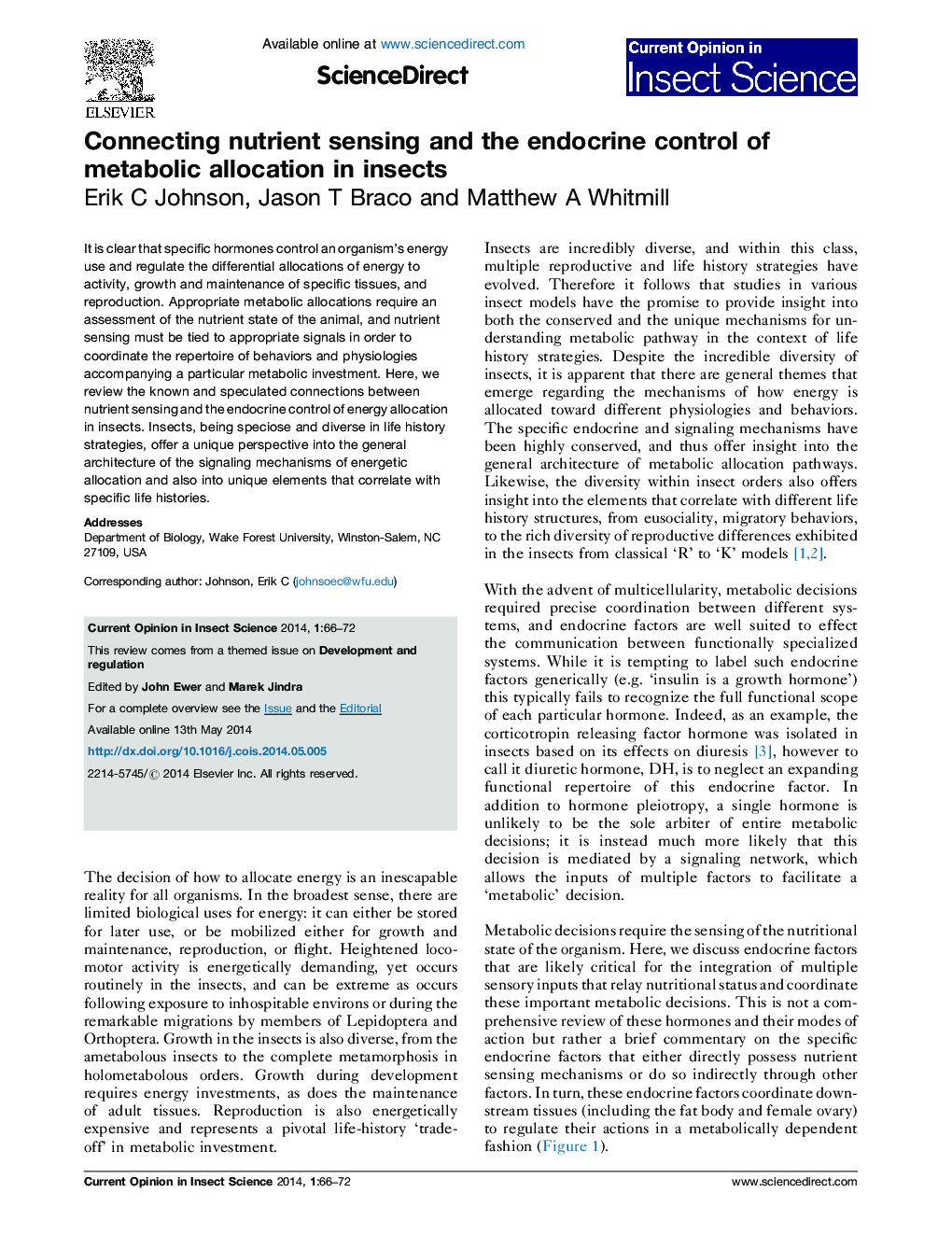| Article ID | Journal | Published Year | Pages | File Type |
|---|---|---|---|---|
| 4508262 | Current Opinion in Insect Science | 2014 | 7 Pages |
•Nutrient sensing is coupled to endocrine signaling in metabolic decisions.•Four hormones play critical roles in allocating energy differentially in insects.•AKH cells possess the cell autonomous nutrient sensors: K+ATP channels and AMPK.•IPCs possess K+ATP channels, and are modulated by corazonin.•A subset of corazonin neurons express a fructose receptor.•Insulin and TOR signaling regulates JH signaling.
It is clear that specific hormones control an organism's energy use and regulate the differential allocations of energy to activity, growth and maintenance of specific tissues, and reproduction. Appropriate metabolic allocations require an assessment of the nutrient state of the animal, and nutrient sensing must be tied to appropriate signals in order to coordinate the repertoire of behaviors and physiologies accompanying a particular metabolic investment. Here, we review the known and speculated connections between nutrient sensing and the endocrine control of energy allocation in insects. Insects, being speciose and diverse in life history strategies, offer a unique perspective into the general architecture of the signaling mechanisms of energetic allocation and also into unique elements that correlate with specific life histories.
